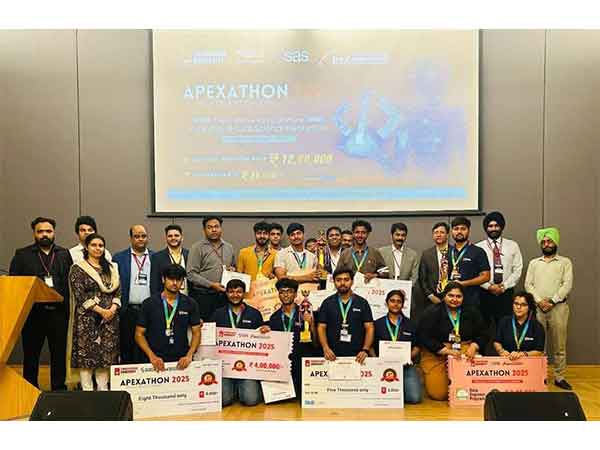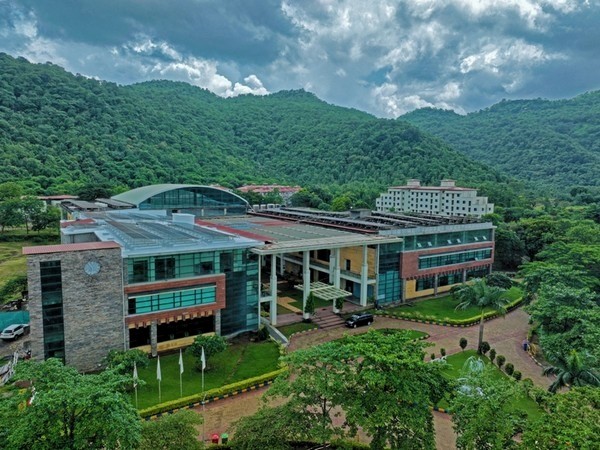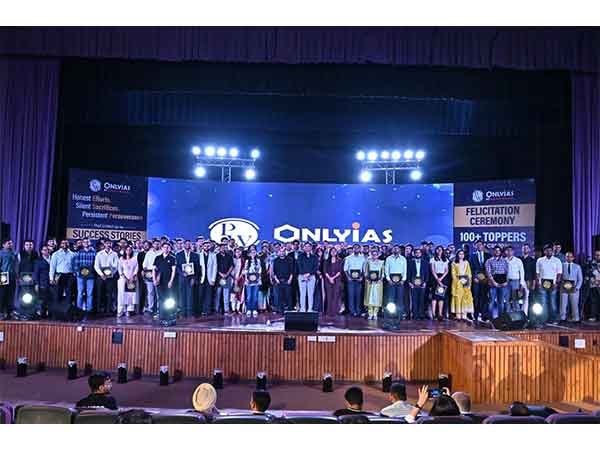Why Live Projects and Internships are Important for PGDM Students
Apr 29, 2025
VMPL
New Delhi [India], April 29: A management degree, particularly a PGDM Program, is often seen as a passport to the corporate world. But here's the thing: textbooks and lectures can only prepare you to a point. The real shift happens when students step out of their structured academic bubble and start solving problems that don't have fixed answers.
That's where internships and live projects come into the picture. They're not just about filling up a CV. Done right, they reshape how students think, work, and even make career decisions.
Why Practical Experience Isn't Just a Bonus -- It's a Necessity
Let's break the illusion: no amount of theory can fully prepare someone for the unpredictability of real-world business. The boardroom doesn't wait for you to recall page numbers from your books. It needs responses that are calculated and quick. And where does that capability come from? Not just from theoretical knowledge but from having applied that knowledge under pressure. Internships and live projects serve this very purpose:
They pull students out of their comfort zone.
Force them to adapt to new work cultures.
Let them experience the rhythm and unpredictability of a real organisation.
It's in these stints that management students learn the weight of deadlines, the impact of client feedback, and the challenge of cross-functional communication.
Internships: More Than Just Summer Assignments
A PGDM program typically includes a summer internship program after the first year -- but the smart ones don't treat it like a formality. They see it as the testing ground where everything they've learnt in class finally meets its opponent: reality. Here's how internships truly add value:
Exposure to Corporate Culture: From day one, students begin absorbing how decisions are made, how teams function, and how leadership is exercised -- things that can't be taught in theory.
Hands-on Learning: Whether it's designing a market entry strategy or running operations in a supply chain, real tasks mean real learning.
Constructive Pressure: Interns may not initially carry huge responsibility, but the expectation to perform is real. This builds accountability.
Industry Understanding: Sometimes, what we imagine about a sector is very different from what it actually is. Internships bring clarity -- and sometimes, surprising new interests.
Many students walk out of internships with changed career goals. And that's not a bad thing -- it's growth.
Live Projects: Learning While the Clock is Ticking
Unlike internships, live projects often run in parallel with academic commitments. That overlap creates a different dynamic. Students aren't just applying what they know -- they're doing it while managing classwork, group presentations, and deadlines.
Time Management Gets Real: No productivity app or planner beats the experience of managing multiple real deadlines.
Learning by Doing: You might learn customer segmentation in class, but creating a strategy for a real brand brings it to life.
Dealing with Uncertainty: Projects change, clients change their minds, and sometimes, teams fall apart. That unpredictability is part of the game.
These experiences make students more than just managers-in-the-making. They start thinking like contributors, owners, and problem-solvers.
A Shift in Confidence -- And It Shows
One of the most overlooked outcomes of practical experience is the subtle shift in confidence. Students who have been through solid internships or multiple live projects speak differently. They ask sharper questions. They reference experiences instead of only theory.
They've had moments when they didn't know the answer and had to figure it out. That trial-and-error process is what builds real competence--not perfection, but presence. This kind of presence stands out in interviews, group discussions, and, eventually, boardrooms.
How the Right B-School Makes All the Difference
Now, a student's initiative plays a big role, but the environment matters, too. The best PGDM colleges that embed practical exposure into the DNA of their PGDM curriculum create stronger professionals--there is no doubt about it.
Take, for example, how JIMS Rohini approaches this balance. Their pedagogy doesn't isolate theory from practice. Students can access real-time projects across sectors. There's also a conscious effort to integrate these experiences into classroom learning, creating a loop between what's taught and what's experienced. This structured exposure not only makes students job-ready but decision-ready, and that's a critical difference.
Building a Career That Starts Before Graduation
The most valuable part of internships and projects isn't the final presentation or the letter of recommendation. It's the clarity they provide.
When students return from a finance internship and say, "This isn't for me," it saves them years of second-guessing. When people thrive during a live digital campaign, they start shaping their electives, certifications, and even job applications around it. This kind of clarity:
Saves time.
Reduces early-career job hopping.
This leads to roles that actually fit skillsets and interests.
It's like giving students a glimpse into their future and letting them decide whether that future excites them or not. Some students start with a two-month internship and get PGDM Placements. Some projects turn into long-term collaborations. None of this is guaranteed, but it's possible -- and more common than we think.
But even when it doesn't lead to a job, it leads to something else: stronger resumes, better conversations in interviews, and an internal compass that's far more reliable than guesswork.
Final Thoughts -- One That Stays With You
What separates a great PGDM experience from an average one isn't just faculty, rankings, or infrastructure. It's how deeply the programme lets students experience the business world while they're still in it.
Internships and live projects aren't sidetracks. They're parallel runways. They give students enough space to stumble, adapt, build, and bounce back before entering the job market. And that's exactly why they matter.
(ADVERTORIAL DISCLAIMER: The above press release has been provided by VMPL. ANI will not be responsible in any way for the content of the same)







